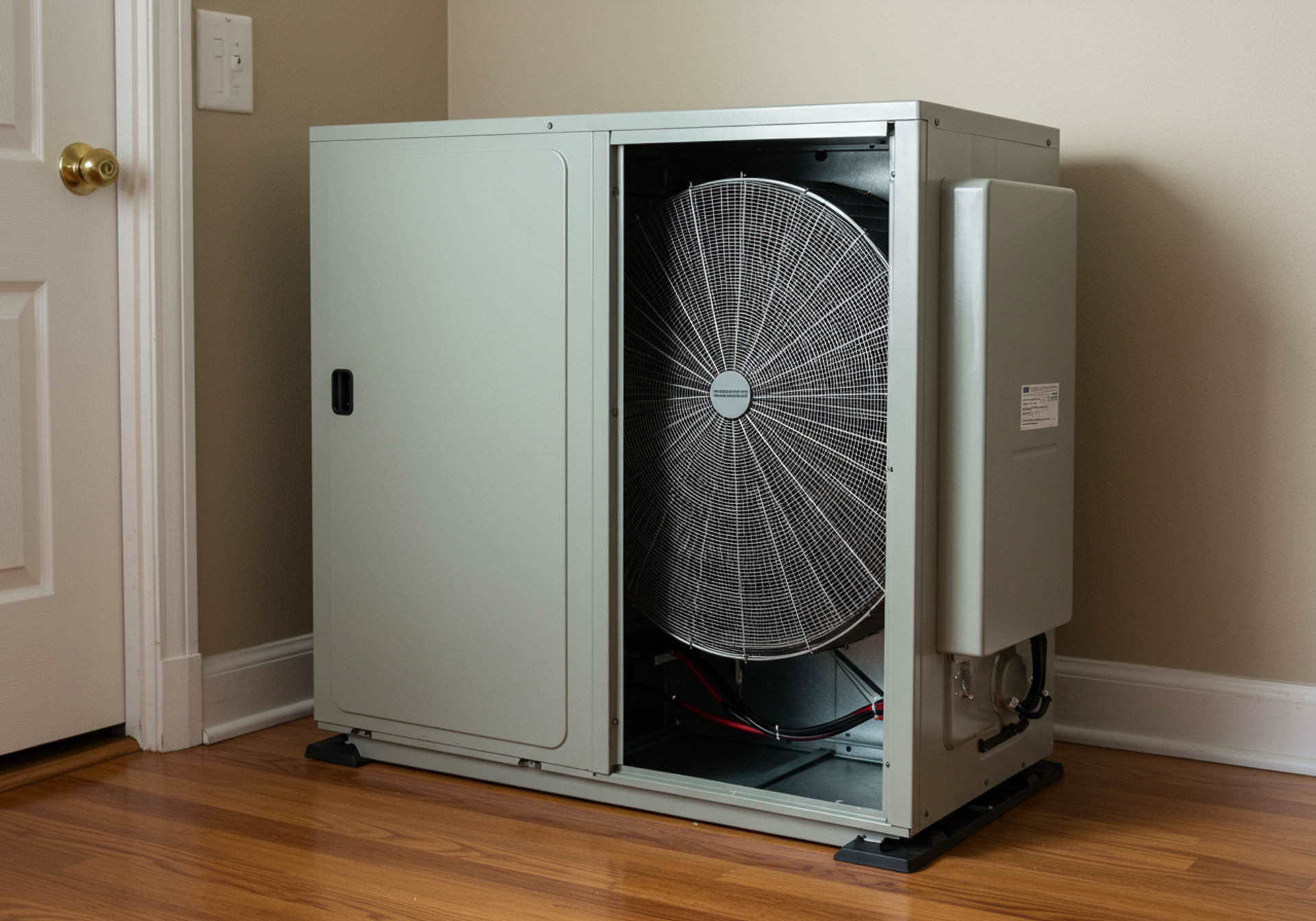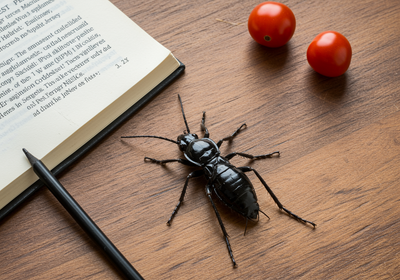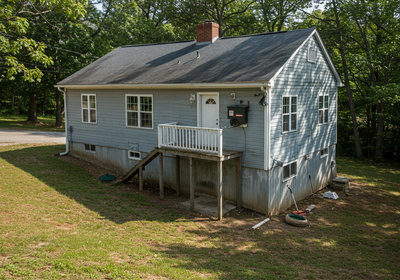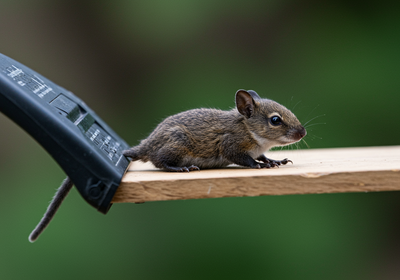
Pests in Your HVAC? Improve Air Quality & Protect Your NJ Home
Uncover how pests silently invade your home's heating and cooling system, secretly impacting your family's air quality and health. Learn why professional pest control for your HVAC is essential for NJ homeowners. Resolve Pest Management provides expert solutions to eliminate hidden pests, ensuring cleaner air and a healthier, pest-free home.
Is Your HVAC System Hiding Pests? Improving Air Quality for NJ Homeowners
Your home's heating and cooling system, often called HVAC, is vital for keeping you comfortable year-round. But did you know it could also be a secret hideout for unwanted guests? Pests can sneak into these systems, turning them into a cozy home and, in turn, impacting the very air you breathe. For homeowners across New Jersey, understanding this hidden threat is key to a healthier living space.
The Unseen Highway: How Pests Invade Your HVAC System
Your HVAC system isn't just the outdoor unit or the thermostat on your wall. It's a complex network of ducts, vents, and machinery that runs throughout your house. These pathways can become perfect highways and homes for various pests.
Pests usually get in through:
- Gaps and Cracks: Small openings in your home's foundation, siding, or around utility lines can lead straight to crawl spaces, basements, and eventually, ductwork.
- Outdoor Units: The outdoor condenser unit can offer shelter, especially during harsh weather. From there, pests can find their way into the lines that connect to your indoor system.
- Loose Ductwork: Over time, ducts can develop small leaks or become dislodged, creating easy entry points.
- Vents and Registers: While covered, determined pests can sometimes squeeze through or find ways around poorly sealed vents inside your home.
Who's Hiding in Your Air Ducts?
When we talk about pests in your HVAC, we're usually looking at a few common culprits:
- Rodents (Mice and Rats): These furry invaders are notorious for seeking warmth and shelter, especially as the weather cools. Your ductwork provides both. They'll build nests, chew on wires (creating fire hazards!), and leave droppings.
- Insects (Roaches, Spiders, Ants, Silverfish): While they might not build elaborate nests like rodents, insects can crawl into ducts looking for moisture, food crumbs, or simply a dark, undisturbed place to hide.
- Wildlife (Squirrels, Raccoons): Larger animals typically stick to attics, chimneys, or crawl spaces, but they can damage ductwork in these areas, opening up entry points for smaller pests to access the actual air pathways.
The Dirty Truth: Pests and Your Indoor Air Quality
Having pests in your HVAC system isn't just creepy; it's a serious health concern. Your heating and cooling system circulates air throughout your entire home. If pests are living or even just passing through your ducts, they're leaving behind a trail of unhealthy contaminants.
- Allergens Galore: Pest droppings, urine, shed skin, and decomposing bodies can break down into tiny particles that get swept into your home's airflow. These are potent allergens that can trigger asthma attacks and allergy symptoms in sensitive individuals. Did you know that the Environmental Protection Agency (EPA) often finds indoor air can be two to five times more polluted than outdoor air? Pests in your HVAC system can certainly add to this problem.
- Unpleasant Odors: The smell of pest urine, feces, or a decaying animal trapped in a vent is not only foul but can permeate your entire home.
- Germs and Bacteria: Pests carry bacteria and viruses. Their waste can introduce these harmful germs into your air circulation, potentially leading to respiratory issues and other health problems for your family.
Signs Your HVAC System Might Be a Pest Hotel
How can you tell if your warm, cozy ducts have become a pest hotspot? Keep an eye (and ear) out for these clues:
- Strange Noises: Scratching, scurrying, or squeaking sounds coming from your walls, ceilings, or directly from your vents, especially at night.
- Unusual Odors: A persistent musky, foul, or rotting smell that seems to come from your vents when the HVAC system is running.
- Visible Droppings: Small, dark pellets found near vent openings or around the outdoor unit.
- Damage: Chewed wires near your outdoor unit, gnaw marks on insulation, or torn ductwork.
- Increased Allergy Symptoms: If family members are experiencing unexplained allergies, coughing, sneezing, or respiratory issues, poor indoor air quality due to pests could be a contributing factor.
Taking Action: What You Can Do & When to Call the Experts
To prevent pests from turning your HVAC system into their home, consider these tips:
- Seal Entry Points: Regularly inspect your home's exterior for cracks, gaps, and holes, especially where pipes and wires enter the house. Seal them with caulk or steel wool.
- Maintain Your Yard: Keep vegetation trimmed away from your home's foundation and outdoor HVAC unit.
- Keep It Clean: A clean home is less attractive to pests. Store food in sealed containers and clean up crumbs promptly.
- Change Filters Regularly: Your HVAC filter catches airborne particles. Changing it monthly, especially during heavy use, can help remove some allergens, but it won't stop pests from moving in.
While these steps are great for prevention, once pests have made their way into your HVAC system, it's a job for the pros. Removing pests from intricate ductwork safely and effectively requires specialized knowledge and equipment. Plus, you'll want to ensure the system is properly cleaned to eliminate all traces of their presence and the health risks they leave behind.
Resolve Pest Management: Your Partner in Clean Air & Pest-Free Living
If you suspect your HVAC system is harboring pests, don't wait. Leaving pests unchecked can lead to greater damage, worsening air quality, and more complex problems down the line. That's where Resolve Pest Management comes in.
We specialize in protecting homes across New Jersey from all kinds of unwelcome invaders. Our expert team can provide a thorough inspection to identify pest entry points and current infestations, whether it's a family of rodents nesting in your ducts, roaches seeking refuge, or other insects making their way inside.
Our relevant services include:
- Rodent Control: We'll safely remove mice and rats, seal their entry points, and help prevent their return.
- Ant Control, Roach Control, Spider Control: We tackle all common household insects that might venture into your ductwork or other hidden areas.
- Wildlife Control: If larger animals like squirrels or raccoons have damaged your home's exterior, leading to pest entry, we offer humane removal and exclusion services.
- Crawl Space & Basement Pest Control: These areas are often where pests first gain access to your home's hidden infrastructure, including ductwork. We ensure these vulnerable spots are protected.
- Seasonal Pest Protection Plans: Our ongoing plans offer year-round peace of mind, proactively protecting your home from a wide range of pests.
- 24-Hour Emergency Pest Control: For urgent situations, we're available to respond quickly.
At Resolve Pest Management, we stand by our S.T.I.N.G. promise – Service, Trust, Initiative, Nurture, and Grit. This means we're committed to providing tailored treatment plans that are effective and also family- and pet-friendly. Our goal is to resolve your pest problems with reliable results, improving your home's overall health and comfort.
We proudly serve homeowners throughout Ocean County, including Toms River, Brick, Lakewood, Bayville, Manahawkin, and Point Pleasant; Monmouth County, covering areas like Middletown, Howell, Freehold, Long Branch, and Red Bank; and parts of Burlington County, such as Wrightstown and Pemberton.
Don't let hidden pests compromise your indoor air quality. If you're an NJ homeowner concerned about pests in your HVAC system or anywhere else in your home, reach out to the trusted professionals at Resolve Pest Management.
Contact us today for an inspection and breathe easier! Call us at (732) 527-5770 or email us at Office@resolvepestmanagement.com.
More Blogs
Some other blogs you might be interested in



